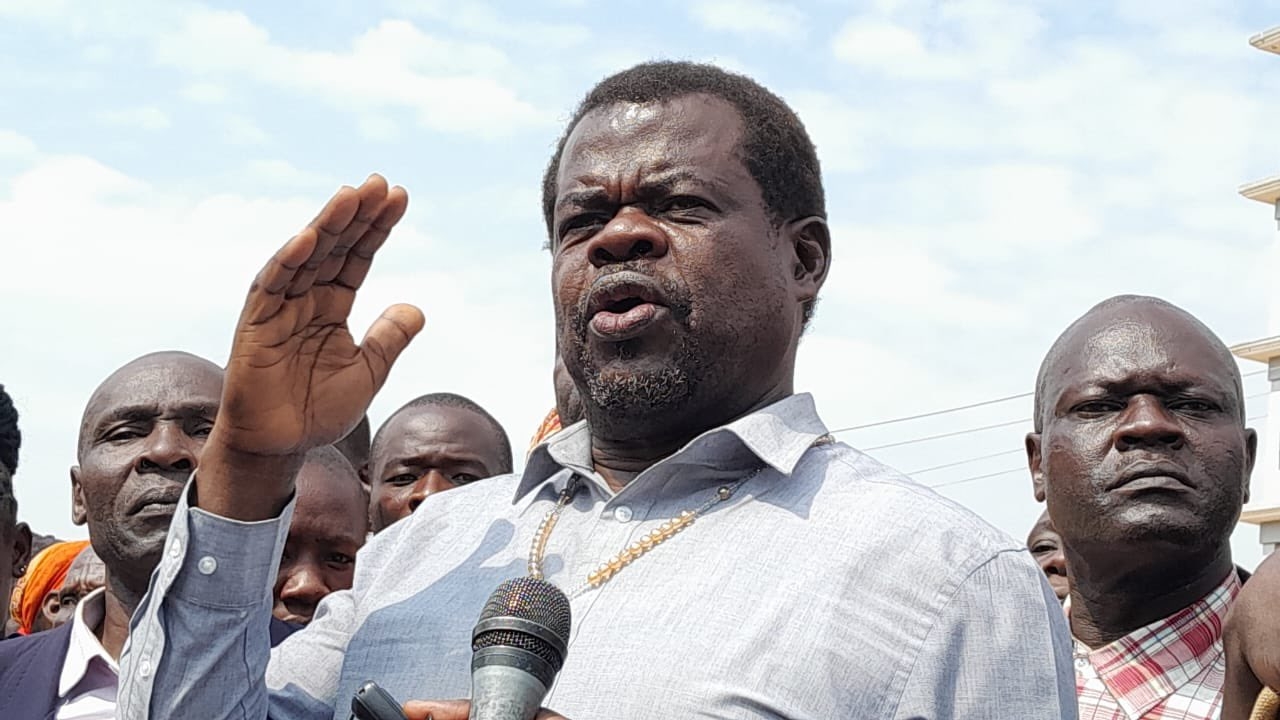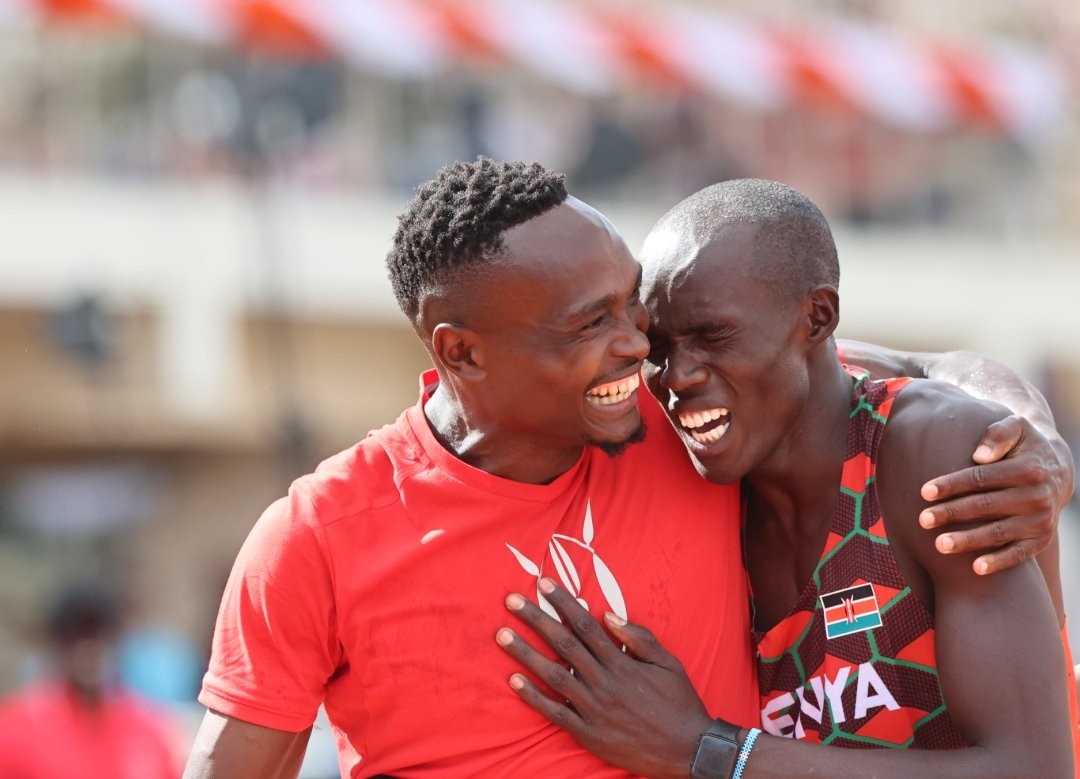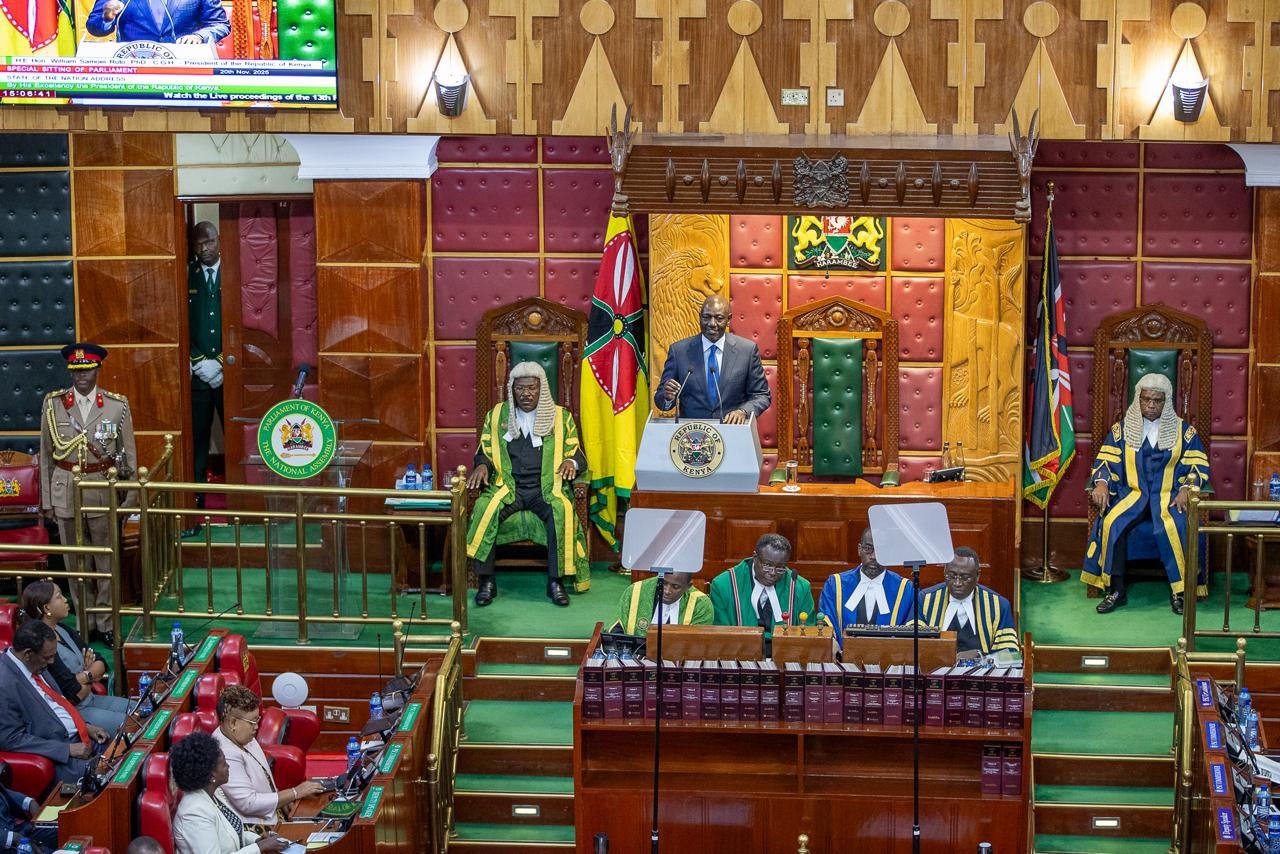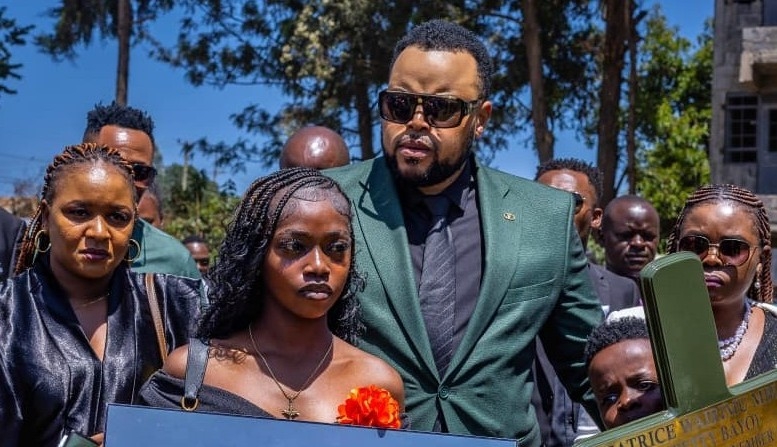For decades, Eveline Langat has been in the art of herbal medicine for ages.
She has treated various ailments, thanks to the sound management of the South Western Mau forest, where she sources her herbs.
“I specialise mainly in treating child ailments,” Eveline says as she holds the tools of her trade closely.
Langat says they do not parade their trade in the streets as others do. Customers look for their services.
Elizabeth Busiene and Richard Cheres are also in the trade.
The two also mastered the art of herbal medicines after the trade was passed to them from their ancestors.
Cheres, for instance, says he has travelled to nearly all parts of the country, treating various ailments.
Langat, Busiene and Cheres are members of the Ogiek community.
To them, every forest remains their home, and they have the right to live and practise their way of life there.
In fact, the community believes tht they have a collective responsibility to protect and conserve it.
While at it, the Ogiek, who are hunters and gatherers, want the Kenyan government and other stakeholders to recognise, respect and affirm this inherent right.
The community has already developed a Bio-Cultural Protocol, clearly stating who they are, where they live, their relationship with forests, such as the Mau Forest Complex, and their land, and associated traditional knowledge; rights over natural resources in the Mau and their responsibility to protect and conserve it.
The community uses the protocol as a tool to safeguard their rights and traditional knowledge and resources by providing clear terms and conditions to regulate access to their assets and sharing benefits that accrue from any development of those assets.
The Ogiek are an indigenous minority ethnic group, traditionally practising hunting and gathering.
Their estimated population with reference to the 2019 Kenya Population and Housing Census report is 52,000 and they mainly inhabit the Mau Forest Complex and the Mt Elgon Forest.
About 30,000 members of the community live in the Mau Forest Complex. The rest live in the forested areas of Mount Elgon, at Chepkitale.
Many forest blocks within the Mau Forest Complex had suffered heavy degradation due to encroachment, which compelled the state to kick out those who had encroached.
The Mau Forest Complex comprises 22 blocks. It covers an area of 1.12 million acres and is a major catchment for 12 major rivers that feed five lakes across five counties.
The Ogiek community is among the indigenous peoples of Kenya, alongside the Sengwer, Yaaku Waata, Sanya and Endorois.
Forests provide food (honey), medicine and shelter, and preserve their culture.
The community protects trees at all costs. In fact, nobody was allowed to cut down trees.
Each clan was given its section or part to protect, conserve, preserve and utilise in a suitable and sustainable manner.
Every clan named their section of the forest-based on their own understanding of the environment. They used myths and taboos to conserve the forest.
For example, cutting various tree species was taboo (giret) and this helped in the protection of indigenous tree species.
The community also practises beekeeping.
The community says their relationship with natural resources has special importance to their culture and spiritual values.
They now think their identity is being lost after the state kicked them out of what they term ‘their ancestral land’.
FIGHT FOR RIGHTS
The community believes the state has been a major impediment to the full enjoyment of their right.
They dragged the state to the African Court on Human and People's Rights, and the Corridors of Justice agreed with them in 2017.
It directed the state to pay Sh157 million in compensation for violations of their rights.
To implement the court’s decision that the community believes holds the key to their existence, they are now engaging the Ombudsman to push the government to honour the ruling.
The judgment concerned the right of the Mau Ogiek to have what little is left of their ancestral lands in the forested Mau Escarpment recognised as their property.
When the government kicked out the Ogiek community from what they term their ancestral land, they pursued justice domestically and regionally at the human rights system of the African Union.
In November 2009, the Ogiek of the Mau Forest filed a complaint against the Government of Kenya at the African Commission on Human and Peoples’ Rights, which was escalated to the African Court on Human and People’s Rights in 2012.
On May 26, 2017, the African Court on Human and People’s Rights made a historic ruling after finding that the government had violated the right to life, property, natural resources, development, religion and culture of the Ogiek, under the African Charter on Human and Peoples’ Rights.
In the eight-year battle, the community, through the Ogiek Peoples' Development Programme and Centre for Minority Rights Development, accused the government of violations of the right to life, property, natural resources, development, religion, culture and non-discrimination under the African Charter on Human and Peoples’ Rights.
On June 23, 2022, the court issued a reparation judgment in favour of the community, outlining in detail the steps the state must take to compensate the Ogiek for the various human rights violations suffered.
The court did so in order for the state to recognise, respect, protect and consult the Ogiek in accordance with their traditions and customs, on all matters concerning development, conservation or investment in their lands.
The court ordered the government to pay Sh57,850,000 for material prejudice for loss of property and natural resources.
Further, the court ordered the state to pay Sh100,000,000 for moral prejudice suffered by Ogiek due to violations of the right to non-discrimination, religion, culture and development.
In addition, the court ordered non-monetary reparations, including the restitution of Ogiek's ancestral lands and full recognition of the Ogiek as indigenous people.
Specifically, the court required the government to undertake delimitation, demarcation and titling to protect Ogiek's rights to property, revolving around the occupation, use and enjoyment of the Mau Forest and its resources.
Some of the court's decisions were to be implemented in six months.
Most of these orders are yet to be complied with despite the state committing to abide by the rule of law.
The court also ordered Kenya to take necessary legislative, administrative or other measures to recognise, respect and protect the right of the Ogiek to be consulted with regard to development, conservation or investment projects in their ancestral lands.
It also ordered that the Ogiek community must be granted the right to give or withhold their free and informed consent to these projects to ensure minimal damage to their survival.
The National Treasury is yet to allocate funds towards compensating them as the office of the Attorney General is yet to give advice.
He said most of those on the committee do not know Mau well.
The Ogiek community wants to be given a community title deed so that the members will not sell the land.
The community wants to get back their home, which will aid in promoting their language and cultural identity.
They say they have been struggling to protect its unique language, identity and way of life.
The community says they are custodians and conservators of the forest and depend on it for their survival.
The UN has also been fighting for the rights of indigenous communities.
On September 13, 2007, the United Nations Declaration on the Rights of Indigenous Peoples (UNDRIP) was adopted by the General Assembly.
The declaration is the most comprehensive international instrument on the rights of indigenous peoples.
It establishes a universal framework of minimum standards for the survival, dignity and well-being of the Indigenous peoples of the world and it elaborates on existing human rights standards and fundamental freedoms as they apply to Indigenous peoples.
Members of the Ogiek community now want the state to hasten the implementation process of the African court’s decision to restore their land tenure rights.
Ogiek People’s Development Programme executive director Daniel Kobei on Wednesday said even though the state has shown goodwill, the process is slow.
“It looks like we have made some steps. However, there are no timelines set,” Kobei said.
Kobei said the Treasury is yet to allocate funds towards compensating them as the office of the Attorney General is yet to give advice.
He said the community wants to get back their home, which will aid in promoting their language and cultural identity.
The community says it has been struggling to protect its unique language, identity and way of life.
They say they are custodians and conservators of the forest and depend on it for their survival.














![[PHOTOS] Betty Bayo laid to rest in Kiambu](/_next/image?url=https%3A%2F%2Fcdn.radioafrica.digital%2Fimage%2F2025%2F11%2F3b166e2e-d964-4503-8096-6b954dee1bd0.jpg&w=3840&q=100)

![[PHOTOS]Goons vandalise Nargis Restaurant in Westlands](/_next/image?url=https%3A%2F%2Fcdn.radioafrica.digital%2Fimage%2F2025%2F11%2Fa1c98f6c-2b1d-4b50-b112-1def4d93a193.jpeg&w=3840&q=100)
